Max Williams Left His Mark on Ole Miss and Mississippi
Demographer, professor and sports fan remembered for data-driven impact and devoted service
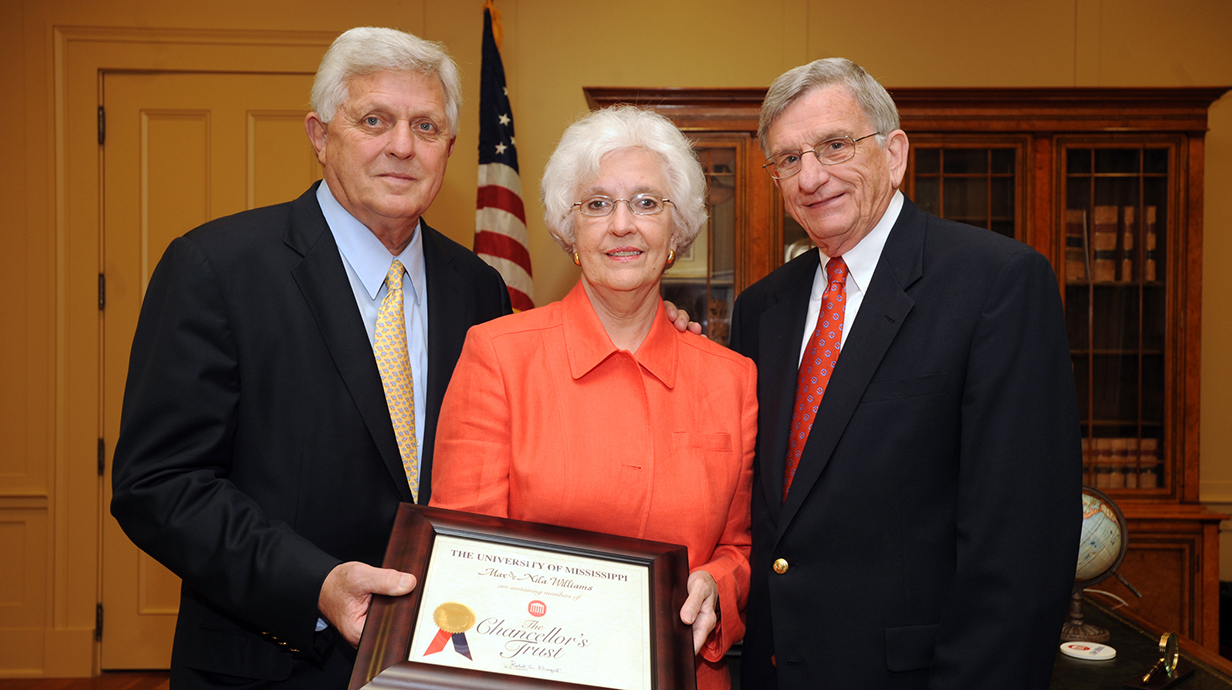
OXFORD, Miss. – At one point, Max Williams knew how many outhouses were in Mississippi and across the South. It was all in the name of helping local, state and federal governments allocate public funds to help social needs, planning and development.
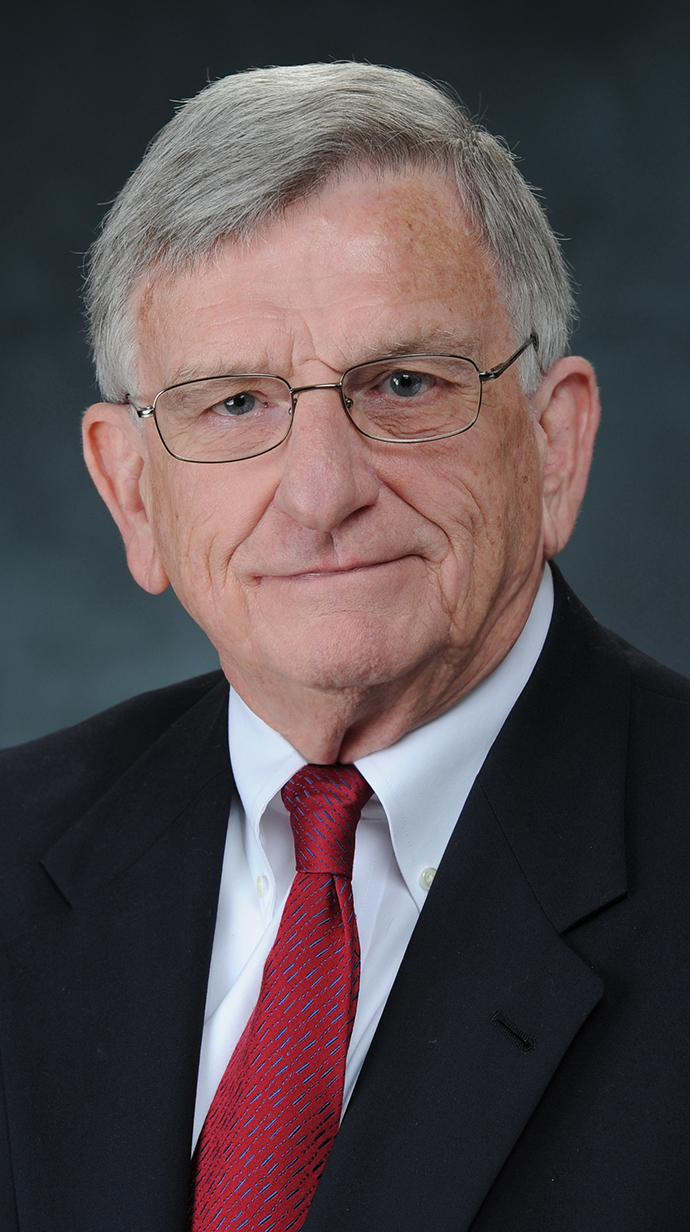
Williams, a demographer, director emeritus of the University of Mississippi's Center for Population Studies and professor emeritus of sociology and anthropology, died Oct. 14, leaving his fingerprints on not only the university, but also the state.
"He was a positive light and positive force in the university community, Oxford and statewide," said Robert Khayat, chancellor emeritus. "He was forward-thinking and astute regarding the world outside the university as well as inside the university."
Visitation and a memorial service are set for 1 and 3 p.m., respectively, on Sunday (Oct.26) at First Presbyterian Church in Oxford.
A Corinth native, Williams joined the university community in 1957 as a student and member of the second class of the Carrier Scholars program. He was a member of Sigma Chi fraternity and earned bachelor's degrees in math and sociology and a master's degree in sociology.
While earning his doctorate in sociology from Vanderbilt University, Williams joined the Ole Miss faculty in 1965 as an instructor. The university named him an assistant professor of sociology in 1968, upon completion of his Ph.D.
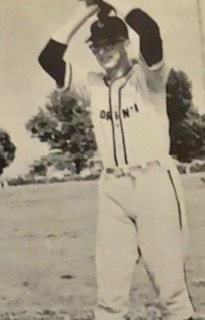
Max Williams pitches for Corinth High School. Williams was a lifelong sports fan, particularly of the St. Louis Cardinals and Ole Miss Rebels. Submitted photo
During his tenure with the university, Williams helped found and served as director of the Center for Population Studies, which houses the U.S. Bureau of Census State Data Center for Mississippi as well as provides education, research and outreach regarding population-related issues.
In explaining the importance of population and census data, Williams once said, "Uses of information collected by the Census Bureau can range from something that simple (determining where to locate tornado warning sirens) to such complicated projects as long-range industrial development plans or projections of future needs for health care facilities."
Williams was excited about using his expertise to help improve life for people across the state, said Don Frugé, professor emeritus of law.
"He worked tirelessly compiling the census data used by so many entities," said Frugé, who described Williams as smart, level-headed, wise and respected by all. "He was thoughtful, kind and exercised good judgment."
Because of these qualities and his expertise Williams served as special master and consultant for the U.S. District Court for the Northern District of Mississippi in voting rights cases and redistricting issues.
"He was a gifted leader and a willing and gifted follower," Khayat said. "He was willing to be a committee chair as well as a committee member; he was good at both."
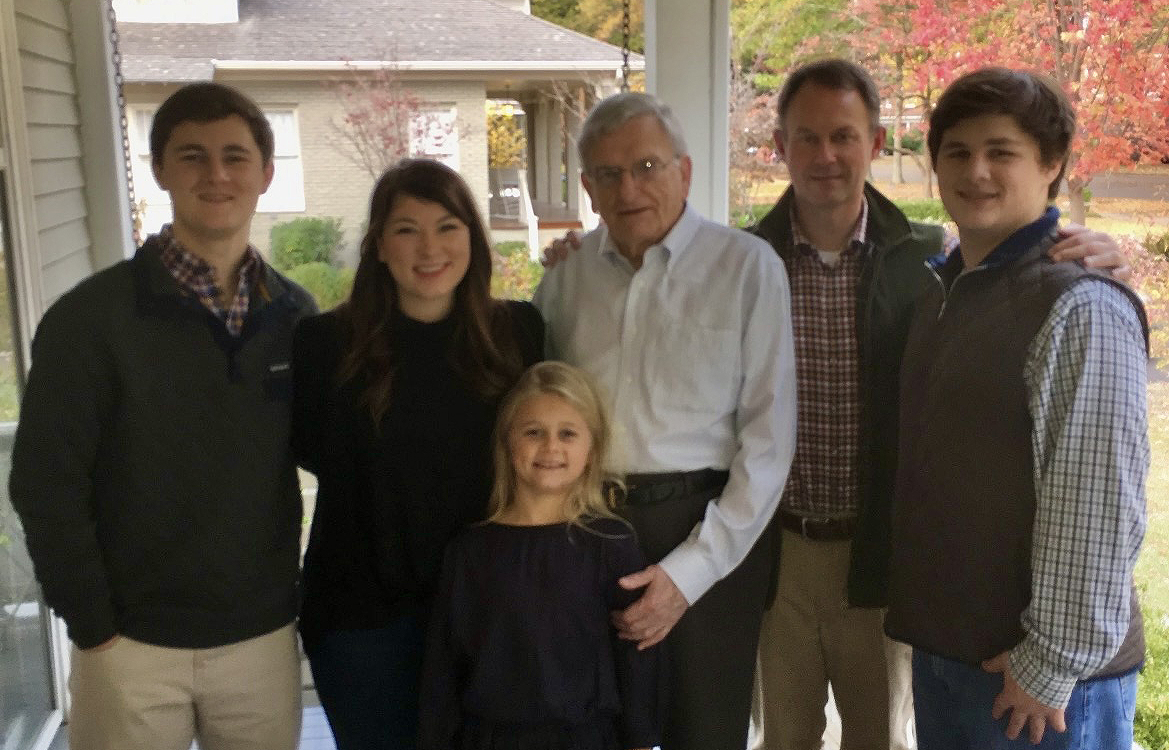
Max Williams (center) spends time at his Oxford home with family, including (from left) grandson Max Williams; granddaughters Mary Shields Hunter and Olivia Williams; son, Ernie Williams; and grandson Brooks Williams. Submitted photo
A devoted sports fan – especially of the St. Louis Cardinals and Ole Miss Rebels – Williams held positions serving as the faculty athletics representative on the Faculty Senate and eventually served in a leadership capacity as chair of the Athletics Committee. That is where Ronald Rychlak, distinguished professor of law and Jamie L. Whitten Chair of Law and Government, got to know him.
"My most memorable day with him was the day Peyton Manning committed to Tennessee," Rychlak said. "Obviously, Ole Miss fans were hoping he would come here. Max got the call and took it stoically. He even made a joke about it, in the dry manner of his humor."
Williams also served on the executive committee and as secretary of the Southeastern Conference and continued to influence those he worked with.
"Later, when I became the faculty athletics representative and committee chair, I remembered Max's example," Rychlak said. "He put the best interests of the student and the integrity of the academic mission first. I've tried to live up to that example. He was the best."
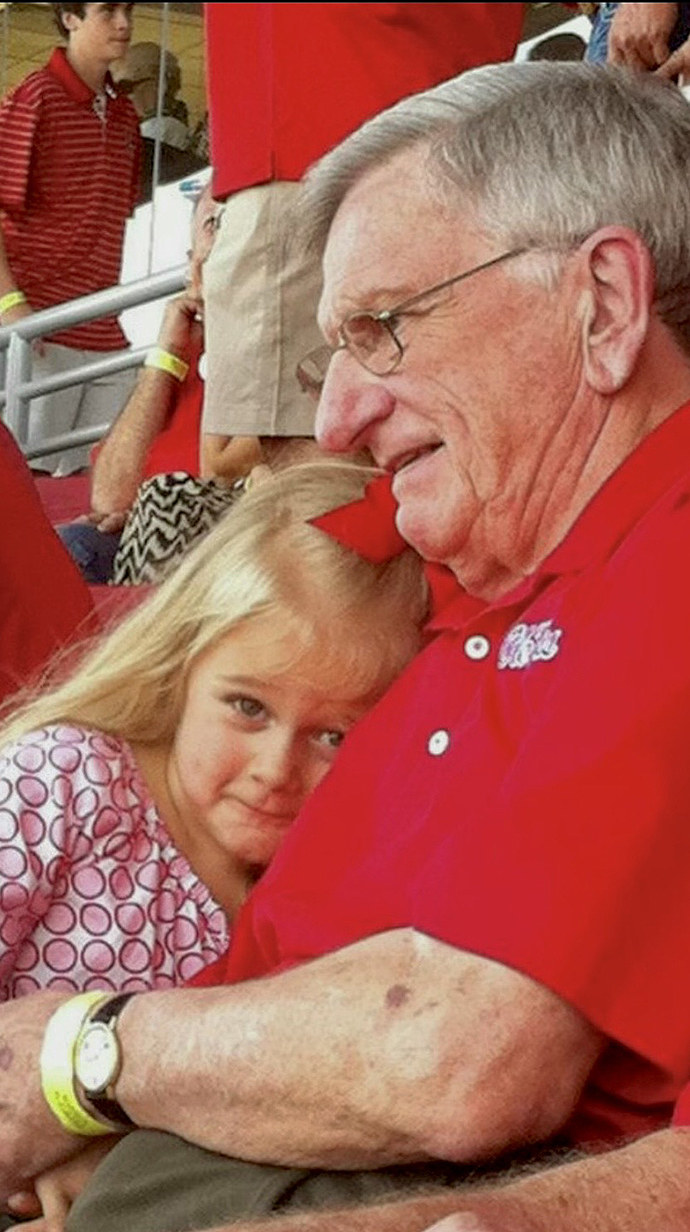
Max Williams attends an Ole Miss football game at Vaught-Hemingway Stadium with his granddaughter Olivia. Submitted photo
Longtime friend, colleague and former university counsel Mary Ann Strong Connell, of Oxford, attended Ole Miss with Williams. They both later worked for the university and served on the athletics committee together.
They spent many hours and traveled miles together working on the university's responses to two NCAA investigations in the late 1980s and early 1990s, Connell said.
"During those times, I saw how deeply devoted Max was to Ole Miss and to both its academic and athletic programs.
"He was a remarkable man: smart, loving, funny, devoted friend, and loyal alumnus of the University of Mississippi," she said.
"He loved Ole Miss," Frugé said. "Perhaps above all he was a true gentleman."
Expressions of sympathy or memorial contributions may be made to the First Presbyterian Church, 924 Van Buren Ave., Oxford, MS 38655, or the University of Mississippi Foundation, P.O. Box 249, University, MS 38677.
"Max Williams was a fine, fine person and has a great family and he made a difference," Khayat said. "He made life better for all of us."
Top: Chancellor Robert Khayat (left) presents Nila and Max Williams a plaque in honor of their contributions as sustaining members of the Chancellor's Trust, a fund that supports the university's greatest needs. Max Williams, who died Oct. 14, is being remembered for his contributions to the university's academic, research and athletics endeavors, as well as his work with community and government organizations. Photo by Nathan Latil/Ole Miss Digital Imaging Services
By
Marisa C. Atkinson
Campus
Office, Department or Center
Published
October 23, 2025
